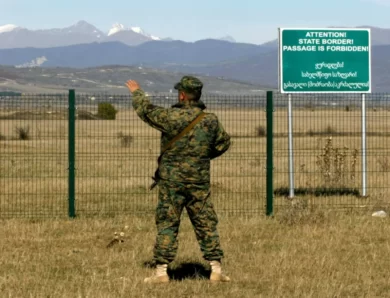
The plummeting confidence in representative democracy is a challenge that many countries will have to face in the twenty-first century. What seemed to be a century of democratic splendor in its very beginning, seems now to have become one of those moments in history in which predictability becomes a goal one could only dream to achieve.
At the beginning of the century, when countries seemed to be heading towards an ever more democratic society, the political scientist Chantal Mouffe was already warning about the dangers of thinking that the West had finally surpassed the antagonistic nature of the political. Long before the vulnerabilities of democracy widespread, Mouffe was concerned about the lack of space given to passions and conflicts in the political arena, she argued that if passions were not to be mobilized by the traditional parties, they would be mobilized by someone else. As it is clear to see, they are now being successfully mobilized by political entrepreneurs which might not be able to solve problems, but who sure know how to vocalize them.
The end of the Cold War was not the end of history (1), neither the end of the political. It was the end of a historical conflict, and if the deterrence theory associated with nuclear weapons might prevent another one from happening among international powers striving for hegemony, it may not be so useful in preventing conflicts within nations-states which were long thought to be conflict-free.
According to Mouffe, by postulating the end of every antagonism and the arrival of a general rational consensus in the political sphere, the current democratic model denies a dimension which is crucial to the construction of collective identities. Therefore, the current dissatisfaction many people share, on both sides of the political spectrum, towards the status quo should not be a cause for surprise.
Disenchantment with representative democracy has been deepening since the end of the 20th century and the growing distrust of citizens towards the effectiveness and responsiveness of political institutions should be the cause of a great concern. As it has become clear, there is no lack of political entrepreneurs willing to use the name of democracy to dismantle the very political institutions that allow democracy to exist in today’s world and, where there is a public willing to support them or prone to be deceived, the damage can only be imminent.
An anti-democratic shadow
Three studies released in 2020 have identified a democratic recess caused by a democratic retreat in many parts of the world, including consolidated democracies. These studies are: Freedom in the World by the Freedom House; Democracy Index by The Economist Intelligence Unit; and Democracy Matrix (DeMaX) by Julius-Maximilians-Universität Würzburg.
According to these studies, although there has been a democratic advance in many countries, the democratic retreat showed a significantly greater force. Among the countries who managed to advance democracy, the most outstanding example would be Tunisia, for it is the only country in the Middle East and Maghreb that managed to hold back the gains of the Arab Spring. When talking about democratic progress, it is not so much about a country which has gone from being an autocracy to become a full and stable democracy, it is rather about improvements within less stable democracies, as in was the case of Tunisia.
When it comes to the countries that have seen their democracy take a few steps back, it does not necessarily regard full democracies (2) that suddenly became autocracies. It rather concerns flawed or even full democracies that have become less efficient or countries that have gone from being democracies to becoming hybrid regimes, that is, regimes in which we find a mixture of democratic and autocratic features. According to DeMax, India, which used to be known as the biggest democracy on earth, is a notorious example of hybridization.
According to the Freedom in the World report, India used to be courted by the United States and its allies as a democratic strategic partner in South Asia, counterbalancing the influence of autocratic China in the important region of the Indian Ocean. However under the government of Prime Minister Narendra Modi, India has distanced itself from its commitment to pluralism, individual rights and religious freedom, which are the very characteristics that made possible the sustenance of democracy in a multicultural state like India. These pillars were indeed those which had made democracy in India so admirable, since they had survived in a quite adverse context – high levels of socio-economic inequality and of cultural heterogeneity.
After the victory of the Hindu Nationalist Party (BJP) in the 2014 elections, India which is surrounded by neighbours known for persecuting religious minorities, as indicated in the Freedom in The World report, seems to have fallen to the lower standards of the region. Modi has annulled the semi autonomous status of Jammu and Kashmir, the only Muslim-majority states of the country, inaugurating a series of repressive policies in these locations.

Source: Freedom in the World
In addition, through the passage of the Citizenship Amendment Law, the Prime Minister conceded citizenship and protection to six non-Muslim religions which suffer from persecution from Paskistan, Afghanistan and Bangladesh, but Muslims who receive the same outrageous treatment in other neighbouring countries – such as China and Sri Lanka – will not receive such protection. Modi’s actions are seen as a strategic attempt to marginalize the 200 million Muslim minority in the country, who now fear they might soon become second class citizens, or simply apatrides.
Nevertheless, the democratic retreat is far from being a phenomenon affecting exclusively the Eastern part of the world. Countries within the European Union have not been spared. The two biggest representatives of the democratic retreat inside the organization are Poland and Hungary. Under the rule of the national-conservative Law and Justice party – the PiS – Poland has seen a significant decrease of judiciary independence and an increasing takeover of media control by the PiS. Meanwhile, in Hungary, Prime Minister Viktor Orbán’s Fidesz party has been concentrating powers for the past nine years.
Orbán has openly promoted the concept of “illiberal democracy” (3). Here we would be wise to remember that a liberal democracy involves not only the free election of its representatives, but also the rule of law, the separation of powers, the imposition of constitutional limits to the expression of these powers and the protection of various individual liberties and rights which Orbán and his populist counterparts in other parts of the world seem to strongly repudiate.
However, the global democratic recess is not limited to countries that have recently become acquainted with the benefits of democracy, it has also reached one of the biggest proponents of this mode of government. For a long time, the greatest representative of liberal democracy – even though susceptible to criticism, especially for sometimes undermining democracies in other countries – was the United States. Nevertheless, the US seems to also be having problems protecting the very system that it has long promoted.
As the public trust in the political institutions decreases and the political polarization increases, one of the major democratic powers in the world seems to be having a hard time protecting their own democracy from deteriorating. Recent American political history has seen the rise of popular dissatisfaction with how democracy is working as well as harmful partisanships. The Trump administration appears to be a result of this process, while actively working to deepen it.
According to the Freedom in the World report, the Trump administration aversion towards democratic norms, his violent rhetoric against the press and against any individual or political figure who dares to criticize his administration and the deplorable treatment of immigrants have all contributed to the undermining of democracy in the United States.
Furthermore, Trump’s questioning of the electoral integrity is a clear sign of the low democratic standards his administration holds. Actually, his claim that he will not necessarily accept the election result is quite representative of the state of democracy in the United States, and the level of political violence that have come to characterize the country in 2020 (4) only adds up to this big picture of democratic recess.
Contrary to what many people might think, the path towards democracy is not a linear one, and arguing that some countries have reached such a level of democratic consolidation that it can no longer move backwards only contributes to the lowering of guard. Democracy is not a self-evident value and even where it seems to be the case, one would be wise not to take it for granted.
Legally eroding democracy
Moments of global democratic recess, or even retreat, are not particularly unusual. As a matter of fact, democracy globally seems to follow a pendular movement, rather than a linear one, which means that if we are lucky enough we might witness an evolution of democracy, however, we should also be prepared for moments of democratic fallbacks.
A historical record confirms this unstable trajectory. According to the DeMax report, from 1900 to 1921 there was an increase in the number of democracies and hybrid regimes in the West, followed by a stagnation in the number of democracies until 1929, when a phase of democratic decline and the rise of fascism took place.
After the end of the Second World War, the world was delighted with a second democratic dawn that lasted until 1964 and which was, once again, followed by a period of retreat – this time characterized not by a shrinking in number of democracies but by a rise in number of autocracies, due to decolonization processes and the rising number of states, democracies were displaced. This trend lasted until 1974, when democracies advanced once more.
In 1995, for the first time, there were more democracies than autocracies, and in 2017, the number of democratic regimes reached its peak. Now, the three reports – Freedom in the World, Democracy Index and Demax – raise questions about the state of democracy in the world and provide evidence that we might be witnessing a new moment of democratic recess, or hybridization of political regimes. If this trend will endure or if it will be temporary, only time will tell.
Nevertheless, the fact that democratic retreats are not uncommon, does not mean that there can never be irreparable damage; and the fact that democracy seems to follow a pendular movement, does not mean that the pendulum could not, at some point, burn. This is not to sound catastrophic or overly pessimistic but, for example, electing heads of government with an authoritarian mentality who do not believe in climate change can, and probably will, cause irreparable damage, because one would have a really hard time trying to convince them otherwise.
Moreover, as stated by Steven Levitsky and Daniel Ziblatt in “How democracies die”, in the past, democracy was subverted mainly through a violent coup d’etat: tanks would take the streets and the proponents of the coup would carry military weapons or, as it happened in most states in Latin America during the 20th century, the military itself would carry on the coup.
Nowadays, leaders who do not hold the most democratic credentials follow a rather different manual: they erode democracy legally which means they undermine the very institutions that allow democracy to exist in today’s world. The new antidemocratic threat might be a much greater one, for it allows authoritarian leaders to keep a democratic facade which in turn makes it possible for them to fool especially those who are most susceptible to populist or authoritarian discourses.
There are many strategies used by populist governments to undermine these institutions. For instance, heads of government can exceed the limits of their powers so many times, requiring the judiciary or the legislature to intervene so often that they produce in the public opinion the impression that it is the other powers that are surpassing their prerogatives, not them, which leads to the undermining of the public confidence in these institutions. Furthermore, they can subvert democracy through simply disrespecting unwritten norms; weakening the public trust in the free press and in the academic world; overpacking the supreme court with judges sympathetic to them; or even making subtle, but important, changes to the constitution if they control the legislature.
The judiciary, the legislature, the opposition, the electoral system and the constitution do not need to disappear so that the demise of democracy can be announced. As a matter of fact, it is much more interesting for authoritarian leaders that these institutions remain still. The trick is to render them ineffective. The Venezuelan Supreme Court of Justice is still there, presidential elections still happen in Russia, they just do not make any difference. And this is not to say that they exist besides the authoritarian leaders that rule these countries, they exist because they want them to exist, it is convenient for them because these institutions are controlled by them.
Take the free press as an example, it is a fundamental institution for the preservation of democracy, but leaders with an authoritarian mentality do not need to shut down media companies, they do not even need to censor them, as it used to be done in the past. They only need to convince their supporters that all opposition media are self-interested unpatriotic liars. Instead of shutting mouths, they cover ears. The result is the same.
The only way out: representation and responsiveness
Subtle attacks against democracy are most effective when they find a suitable environment for such. They are not so obvious but they do not go unnoticed either, not if the people are still attached to democracy and its institutions, not if the people are willing to stay vigilant.
The problem is that representative democracy has been progressively discredited. It is going through a crisis of legitimacy, as the reports show, and the level of dissatisfaction that we have seen from both sides of the political spectrum is a sign that the status quo will not be the one to save democracy. If things remain unchanged, if nothing is done to make democracy more responsive and more representative of an ever more plural society, we will not be able to allow ourselves to be surprised if most people become so apathetic that they do not even feel the demise of democracy. As the character Meursault in Albert Camus novel “L’Étranger”, they might wake up one-day and say “Democracy died today. Or maybe yesterday, I don’t know” (5).
The way out of this crisis is the construction of a political scenario where there is space for the manifestation of a plurality of values, opinions, interests and also passions. As stated by Chantal Mouffe, one cannot, and should not aim to, take the passion out of the political arena. The people need to be able to identify themselves within the democratic institutions and, in order for that to happen, representative democracy needs to be willing to actually represent not only the view of dominant groups, but the plurality of views found within a diverse society.
Democracy can only move forward if it takes a few steps back to develop mechanisms which actually allow people to express their passions and their conflicting points of view democratically. As long as it is compatible with democratic values, there is no reason to fear dissent. When it comes to democracy, the feeling which should be feared the most is apathy. A democracy which lacks representation and responsiveness, can have its demise easily caused by indifference, for when it is gone, its departure will simply not be felt.
Giovanna Macieira Rosário
(1) In 1992, the american political economist Francis Fukuyama published the article “The end of history?” in which he writes about western liberal democracy.
(2) “Full democracies: Countries in which not only basic political freedoms and civil liberties are respected, but which also tend to be underpinned by a political culture conducive to the flourishing of democracy. The functioning of government is satisfactory. Media are independent and diverse. There is an effective system of checks and balances. The judiciary is independent and judicial decisions are enforced. There are only limited problems in the functioning of democracies.” (THE ECONOMIST INTELLIGENCE UNIT, 2020)
(3) In 1997, Fareed Zakaria wrote: “Democratically elected regimes, often ones that have been reelected or reaffirmed through referenda, are routinely ignoring constitutional limits on their power and depriving their citizens of basic rights and freedoms. From Peru to the Palestinian Authority, from Sierra Leone to Slovakia, from Pakistan to the Philippines, we see the rise of a disturbing phenomenon in international life — illiberal democracy.” (ZAKARIA, 1997).
(4) “Four years into the Trump era, Americans have struggled to habituate themselves to the persistent presence of armed paramilitaries at demonstrations and flashes of lethal political violence.” (YABLON, 2020).
(5) “Maman died today. Or yesterday maybe, I don’t know.” (CAMUS, 1989)
Sources
Avritzer, L. O pêndulo da democracia. São Paulo: Todavia, 2019.
Camus, C. The Stranger. New York: Vintage books, 1989.
First Presidential Debate of 2020 Election. NBC News, 2020. Available at: <https://www.youtube.com/watch?v=5cathmZFeXs> [Accessed 10 october 2020]
Freedom House. Freedom in the World: a leaderless struggle for democracy, 2020. Available at: <www.freedomhouse.org>. [Accessed 20 septembre 2020].
Garton Ash, T. Europe must stop this disgrace: Viktor Orbán is dismantling democracy. The Guardian, 2019. Available at: <https://www.theguardian.com/commentisfree/2019/jun/20/viktor-orban-democracy-hungary-eu-funding> [Accessed 20 october 2020]
Julius-Maximilians-Universität Würzburg. Democracy Matrix (DeMaX): No Age of Autocratization! Growing Hybridity in the Center of the Regime Continuum, 2020. Available at: <www.democracymatrix.com>. [Accessed 10 october 2020].
Levitsky, S.; Ziblatt, D. How democracies die. New York: Crown, 2018.
Mouffe, C. For an agonistic model of democracy. In: The Democratic Paradox. London: Verso, 2000. Chap. 4. p. 80-107.
The Economist Intelligence Unit (EIU). Democracy Index 2019: year of democratic setbacks and popular protest, 2020. The Economist Intelligence Unit Limited. Available at: <www.eiu.com>. [Accessed 15 september 2020].
Yablon, A. America Is About to Enter Its Years of Lead. Foreign Policy, 2020. Available at: <https://foreignpolicy.com/2020/09/30/america-years-of-lead-political-violence-trump-election> [Accessed 15 october 2020]
Zakaria, F. The Rise of Illiberal Democracy, 1997. Foreign Affairs. Available at: <https://www.foreignaffairs.com/articles/1997-11-01/rise-illiberal-democracy> [Accessed 10 october 2020]





Good read ! Wondering if most advanced democracies invest enough in education so that future generations actually understand what’s at stake and don’t ‘fall’ for illiberal political salespersons. Ultimately, the type of heads of state and government we elect reflect the overall intelligence of a nation’s population.